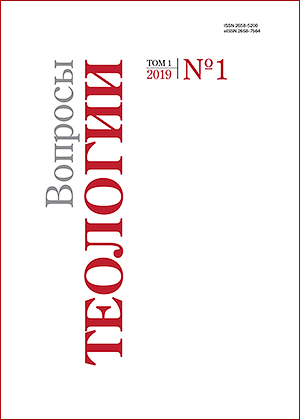Мешает ли религия публичному диалогу?
DOI:
https://doi.org/10.21638/spbu28.2019.106Аннотация
В современных обществах, которые считаются «секулярными», распространено представление о религии как факторе, препятствующем культурному и политическому диалогу. Как отмечает, в частности, американский философ Р. Рорти, ссылки на «глубокие религиозные убеждения» в публичных дискуссиях нередко используются в качестве последнего довода, кладущего конец разговору. Религия выступает «тормозом» коммуникации, более того, она политически опасна, считает Рорти. Выход он видит в «приватизации» и деинституционализации культа. В настоящей статье выдвигается ряд аргументов против данной лаицистской позиции. Недооценивая роль коллективного фактора в религиозной жизни, Рорти упускает из виду, что подлинную основу «личной» (private) религиозности составляют вероучительные принципы, фиксируемые в текстах или устной традиции и интериоризируемые верующими. Религия — всегда общее, а не частное дело. Лаицизм, выражающийся в противопоставлении религии и политики, индивидуального духовного совершенствования и социального активизма, идет вразрез с принципами либеральной демократии: верующие, которым приходится раскалывать свою идентичность на религиозную и гражданскую, оказываются в менее выгодных условиях, чем носители светских мировоззрений. Факты свидетельствуют о том, что религия в постсекулярном мире, вопреки мнению Рорти и его единомышленников, вновь становится интегральной частью политики, возвращаясь в общественное пространство из приватного гетто, куда ее пытались загнать теоретики и практики западного секуляризма. Религиозные настроения усиливаются, церкви и духовные лидеры все чаще выступают в роли политических акторов, оказывающих влияние на общественное мнение и на решения, принимаемые правительствами. Следовательно, имеет смысл говорить о возрождении, а не упадке религии, о «публицизации», а не приватизации веры.
Ключевые слова:
религия, политика, секуляризм, публичное, приватное, коммуникация, диалог
Скачивания
Библиографические ссылки
Загрузки
Опубликован
Выпуск
Раздел
Лицензия
Статьи журнала «Вопросы теологии» находятся в открытом доступе и распространяются в соответствии с условиями Лицензионного Договора с Санкт-Петербургским государственным университетом, который бесплатно предоставляет авторам неограниченное распространение и самостоятельное архивирование.




